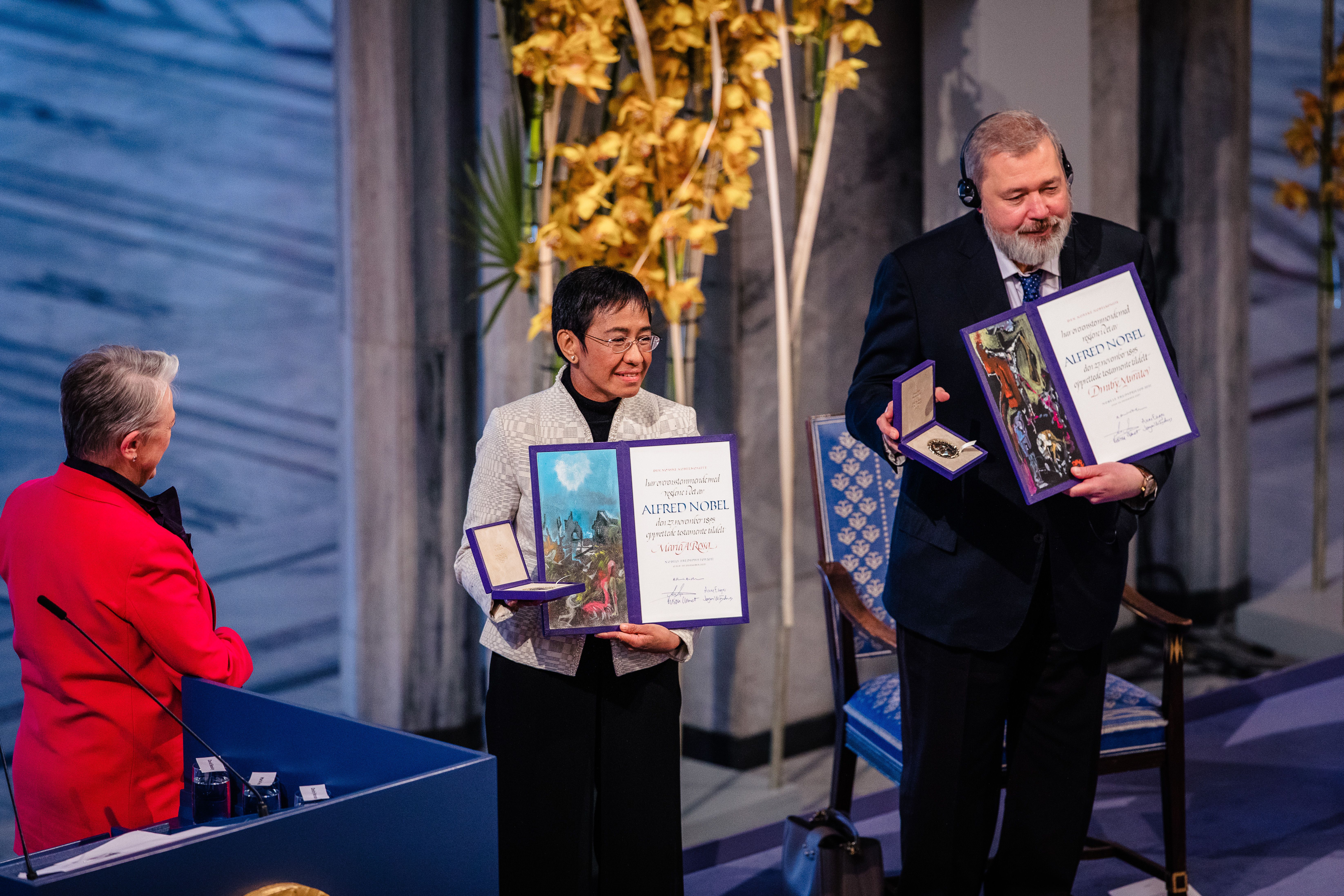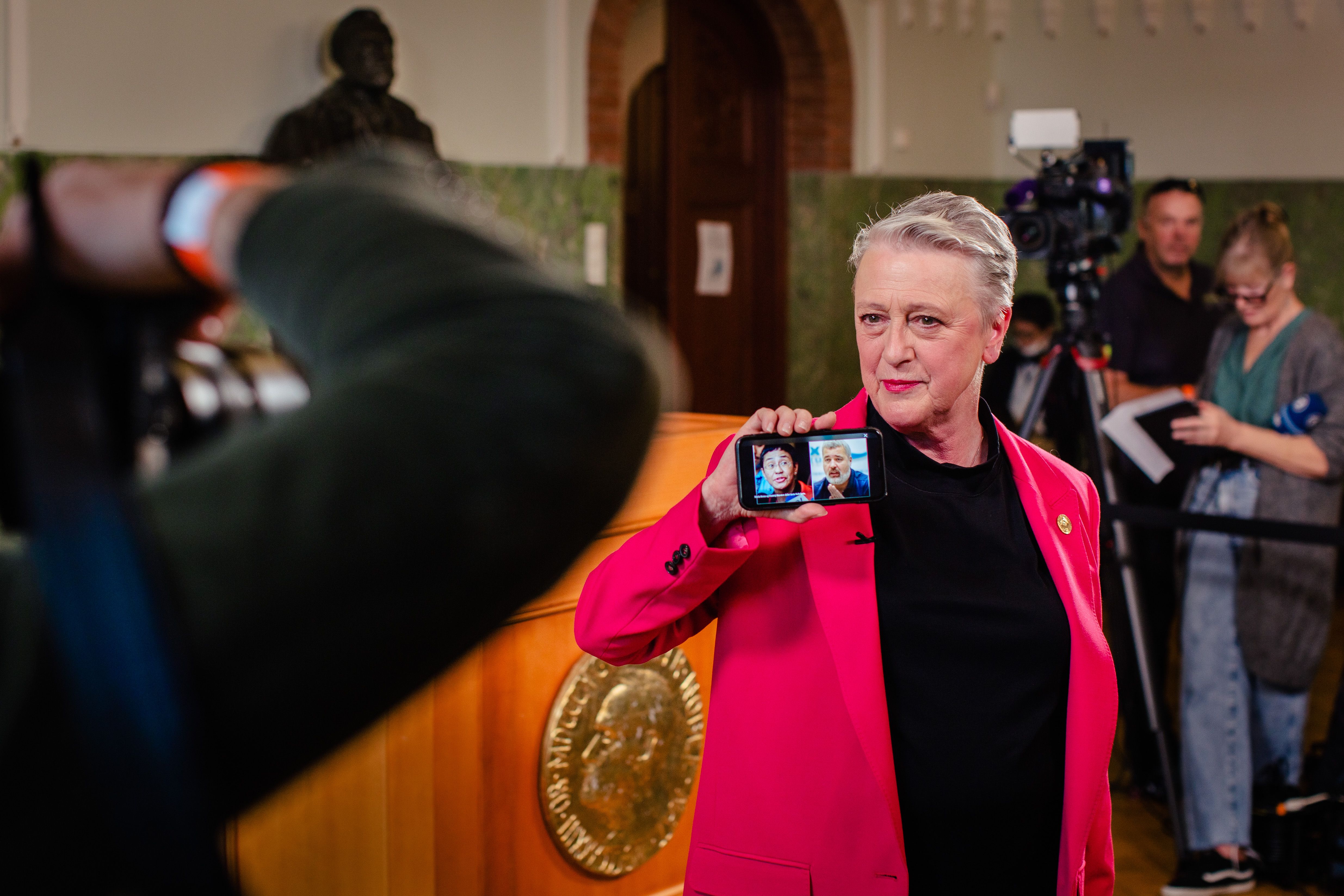A door opener for the whole world
"The Norwegian Nobel Committee has decided…"
In a few days the suspense will be over. Then the whole world will know who will receive the Nobel Peace Prize for 2022. For a few minutes, the eyes and TV cameras of the whole world will be focused on Oslo and the Norwegian Nobel Committee's leader Berit Reiss Andersen. For a few hours, the name of the new Peace Prize laureate is on everyone's lips and in the headlines of news broadcasts worldwide.
Why is interest in the Nobel Peace Prize still so great, 121 years after the prize was first awarded?
I would like to point to three important reasons for this.
1. Relevance
Firstly, the Norwegian Nobel Committee has awarded the prize in ways that reflect critical contemporary issues. Last year's award to the two journalists Maria Ressa and Dmitry Muratov is the latest and most striking example. The prize became more and more relevant during the year.

When the Peace Prize was announced in October 2021, it was still more than four months until Russia was to invade Ukraine and Putin's regime was to make it a criminal offense to use the word "war", thereby virtually banning independent journalism in Russia.
It was seven months until a well-directed social media campaign in the Philippines was to rewrite the Marcos family's authoritarian past and make it possible for Ferdinand Marcos Jr. to be elected president. Now, a year after the two journalists were announced Peace Prize laureates for their efforts to safeguard freedom of expression, the words of the announcement text are still extremely relevant: “A free, independent and fact-based journalism serves to protect against abuse of power, lies and war propaganda.”
Or, if we turn this on its head: without free, independent and fact-based journalism, society is susceptible to abuses of power, lies and war propaganda.
2. Unpredictable
Secondly, the Peace Prize laureate is often an unpredictable choice.
The candidates who repeatedly appear on the lists of the world's bookmakers rarely make it all the way to the finish line. And it has probably never happened that the candidate who is at the top of the annual favorite list of the Director of the Peace Research Institute Oslo has been declared a Peace Prize laureate.
Sometimes the head of the Norwegian Nobel Committee comes out the door and reads out a name we have barely heard of, such as Rigoberta Menchú, Wangari Maathai or the Tunisian National Dialogue Quartet. Other times it is a name we know well, but which no one thought would receive the prize, such as the European Union or Barack Obama. This leads to reactions and debate – which in turn helps to keep the prize relevant and evolving.
Last year's announcement was also surprising, in its own way. Before October 2021, many thought it was high time that a Peace Prize was awarded for journalism. That had not happened since 1935, when the journalist Carl von Ossietzky received the prize for revealing that Germany was secretly rearming its military forces. In 2021, the organization Reporters Without Borders was high on the favorite lists. But the Norwegian Nobel Committee surprised everyone by giving the prize to two individual journalists. In this way, the prize focused both on the role of journalism in supporting world peace and on the state of freedom of expression in two countries which were relevant in their own ways and which were both about to move in an anti-democratic direction.
3. It makes a difference
Third, the Nobel Peace Prize makes a difference.
The most tangible proof of that may have been this summer, when Muratov auctioned off his Nobel Peace Prize Medal for over one billion Norwegian kroner and gave the money to children affected by the war in Ukraine.
Another example of the significance the prize has was when the recently deceased Mikhail Gorbachev, who received the Nobel Peace Prize in 1990, used part of his prize money to found the newspaper Novaya Gazeta, of which Muratov is the editor. But the world attention the prize provides is probably even more important than its monetary value.
“I do and say exactly the same things now as before I received the award. The difference is that now people listen to me,” said indigenous people’s rights defender Rigoberta Menchú when she visited the Nobel Peace Center. The Peace Prize laureates' messages gain more impact and a larger audience. They become sought-after speakers worldwide and what they say is listened to deep in the corridors of power.

Their voices can be used in a different way, such as when Muratov and Ressa launched an action plan against online disinformation and Big Tech at the Nobel Peace Center's Freedom of Expression Conference in September 2022. In the plan, which is supported by numerous Nobel Prize laureates and over a hundred other signatories, they make ten specific demands of governments, the European Union and the United Nations.
For the Nobel Peace Center it is important to be able to contribute to the Peace Prize actually making a difference to the cause for which it is awarded. We want to be an arena where not only the Peace Prize laureates can shine, but where the issues they represent can be explored from many angles, be highlighted and be lifted up the agenda. That's why we create an exhibition that can inspire the public, a teaching program that provides students with knowledge and a whole series of related events that can engage both decision-makers and the general public.
On Friday 7 October we will have a new Peace Prize laureate. Then our Nobel Peace Center team will discover which person, organization or issue we will be focusing on for the next year. Whoever it is, we promise to help ensure that the Peace Prize's spotlight continues to shine and create change long after the flashbulbs on the day of the announcement have gone off.
This chronicle was originally published in Altinget.no
Share: